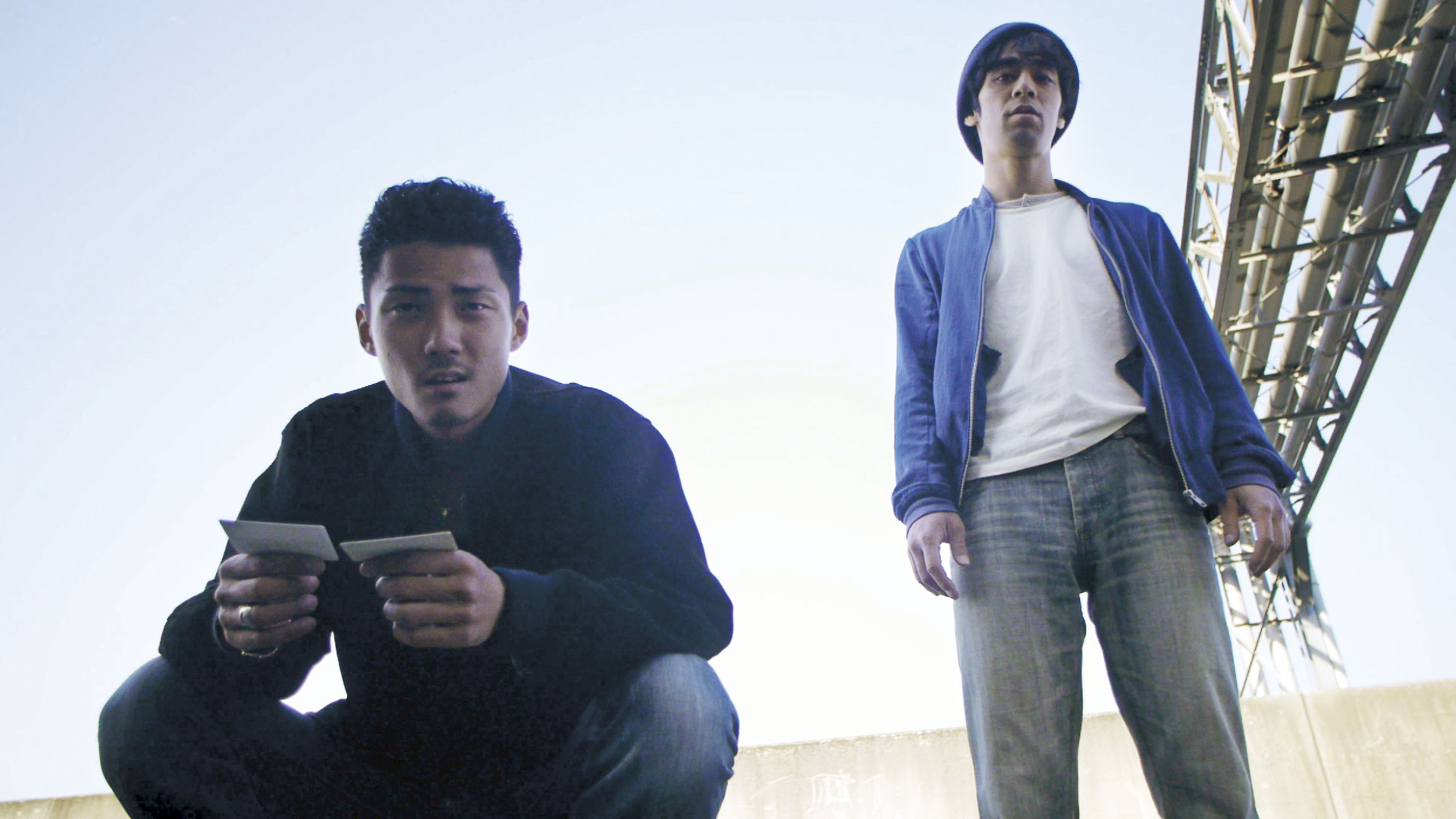Most films about the yakuza depict its members as fully formed and distinctly different from the general run of humanity, somewhat like action figures just out of the box. The reality, as Hiroshi Shoji's "Ken and Kazu" shows us with a gritty directness and power, is more quotidian. For Shoji's title heroes, crime is less a way of proving their outlaw manliness than a risky means to an uncertain monetary end as they face a bleak future.
Based on Shoji's own script, "Ken and Kazu" rejects the gangster genre's macho romanticism, while depicting its principals in the round, their dysfunctional families included. In this it resembles "Ryuji," Shoji Kaneko's 1983 indie classic about an ex-con (Kaneko) trying to go straight with his much-put-upon wife's support, a film that was scripted and shot after the director/star apprenticed with an actual gang.
Named Best Picture in the Japanese Cinema Splash section of last year's Tokyo International Film Festival, "Ken and Kazu" reflects a different era to "Ryuji." The lines that once separated the gangs from straight society have since become blurred or erased. One comparison is the U.S. television series "Breaking Bad," whose ordinary-guy hero becomes a meth kingpin and finds his life in constant jeopardy.



















With your current subscription plan you can comment on stories. However, before writing your first comment, please create a display name in the Profile section of your subscriber account page.